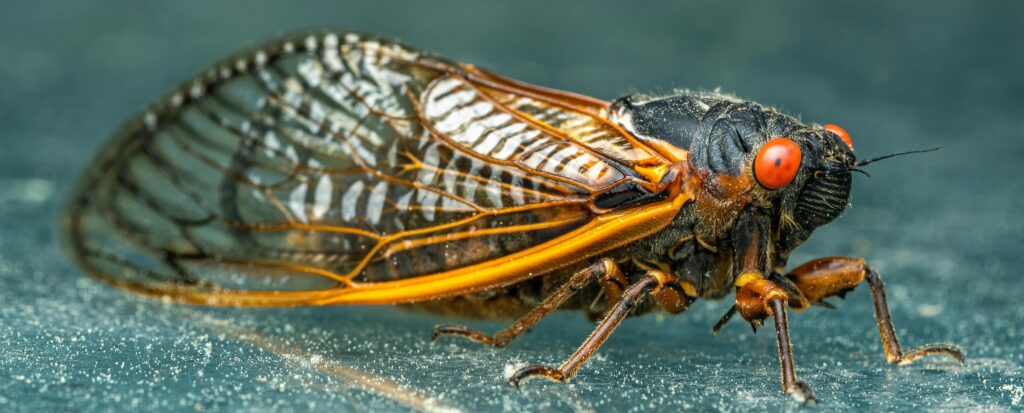
The Carolina Cicada Invasion: What You Need to Know
Cicada season will be unusually loud in 2024 in parts of the Carolinas. Some areas can expect substantially more cicadas than even the busiest of years. So why are there so many more Cicadas this year? The reason for this is the unusual emergence of two periodical broods of Cicadas at once.
Cicada species are generally categories into two groups, annual and periodical cicadas. Annual cicadas have a three-to-four-year life cycle while periodical cicadas have a life cycle that ranges between 13-17 years, and while they are two different species, they do have similar life cycles. Both groups start the nymphal stage, feeding off tree roots underground. They will remain in this life stage until the soil temperature increases and triggers them to emerge from the ground.
In 2024, it is expected that two broods will be emerging around the same time. These are brood XIII and brood XIX. These two broods have not emerged together since 1803. With this event, it is expected that billions, if not trillions, of cicadas will be emerging simultaneously. These broods should be emerging this spring, although a precise date is difficult to determine as emergence is predicated on soil temperatures reaching the mid-60-degree mark.
While the sheer number of insects emerging is alarming, cicadas do not pose a risk to people or pets. These insects feed on plants, do not bite, and are not poisonous if your pet gets hold of one.
There is, however, the potential for damage to plants to occur. This is not caused by adult cicada feeding activity; rather, it is caused by their reproduction. Females of the species will make grooves in the limbs of plants and deposit their eggs in them. The eggs then hatch, and the larvae feed on the plants’ xylem (juices). After feeding, the larvae fall from the branches and burrow into the ground, where they hunt for plant roots to feed. The slits that are cut into the branches can cause the branches and leaves to wither and turn brown in a process known as “flagging.”
Pesticide applications are not effective in controlling or shrinking cicada broods. Their sheer numbers virtually guarantee that any cicadas that are killed will be quickly replaced. Additionally, pesticide applications can pose a risk to other beneficial insects and animals if not performed correctly. Those who live in areas where the broods are expected to emerge can cover their plants with netting. This prevents the females from landing on the branches and laying eggs.
If you have any questions or concerns about pests in the Carolinas, you can learn more on Clark’s blog. If you have a pest emergency or are looking to prevent future pest problems, call Clark’s Termite & Pest Control.
